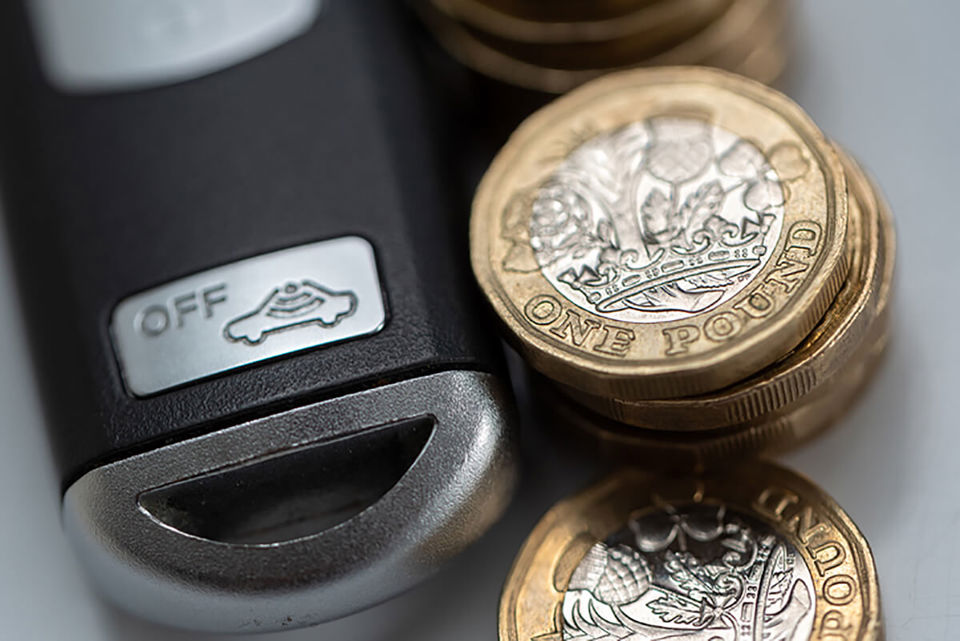The fleet and leasing industry welcomed measures announced by the Chancellor but were disappointed to not see further help for the sector in a range of areas.
Key among the 110 measures announced by Jeremy Hunt in the Autumn Statement were making a tax break for businesses investing in plant and machinery, including trucks and vans, permanent and a cut in employee national insurance contributions (NICs) .
Peter Golding, managing director, FleetCheck, said: “This is probably the kind of Autumn Statement you’d expect from a Government that will be facing a general election sooner rather than later.
“Its big moves were the NI cut designed to make consumers feel as though their finances are improving and the full capital expensing, designed to boost investment and the economy.
“All of these are reasonable moves and should have some positive effects but there was little here that will help the fleet industry specifically and the general backdrop is one where the drag and damage caused by everything from Covid to Brexit have all had very real effects.”
He added: “The next couple of years will be difficult for fleets, with budgets under pressure and an ongoing need to minimise costs, although we are sure that fleets managers will show their customary ingenuity and dedication in tackling these issues.”
Jon Lawes, managing director at Novuna Vehicle Solutions, welcomed announcements around electric vehicles (EVs) and improving access to the grid.
“Policymakers have been sending mixed signals on the UK’s transition, so the plans announced in today’s Autumn Statement to earmark £2bn for zero-emission vehicle development, reform electricity grid access and support business investment are welcome.
“Now the Government must show how this will lead to concrete outcomes, including with its promised consultation on fast-streaming EV charging rollout.
"There is an urgent need to boost net-zero infrastructure around the UK, and improve EV purchase incentives.
"It is vital that these measures translate into local investment which provides businesses and consumers with the confidence to make the switch.”
Mike Hawes, chief executive of the Society of Motor Manufacturers and Traders (SMMT), also welcomed £2bn for zero emission automotive manufacturing, labelling it an "unequivocal vote of confidence" in the sector.
"The Chancellor’s statement today, with its focus on business growth, responds to our industry’s need for measures that allow UK automotive to compete for investment.
"The attractiveness of the UK will be bolstered by permanent full expensing and, given the importance of decarbonising the market and manufacturing, speeding up grid access.
“The UK proposition is enhanced by these measures but it is equally important that they can be accessed. The implementation of the Harrington Review on foreign direct investment must help simplify and speed up the process.
“We now look forward to the Government’s advanced manufacturing plan, its battery strategy and how it will support consumers in making the switch to zero emission motoring, as we must not only make these vehicles locally but sell them.”
Alfonso Martinez, UK managing director of ALD Automotive LeasePlan (soon to be Ayvens), believes full expensing is an important step to promote long term business investment with corporation tax rising to 25% in 2024/25.
"Unfortunately, cars are exempt from this scheme, and so are vehicles that are bought with the intention that they will then be leased," he said. "This means that leasing companies cannot reduce their tax bills accordingly and pass on the savings to their customers.
"The BVRLA, along with a working group made up of ALD Automotive LeasePlan, Lex Autolease and Europcar, has spent most of this year working with HM Treasury to develop a policy solution that closes this gap. We were hoping for an announcement during the Autumn Statement, but the Chancellor has yet to act.
"Reforms are needed urgently, particularly to support the electric vehicle market ahead of the first mandatory registration targets – a 22% share of new cars and 10% of new vans – being introduced next year."
On changes to national insurance and the living wages, he said that they "inadvertently" affect the salary sacrifice schemes which are making electric vehicles (EVs) more accessible to drivers.
Salary sacrifice enables drivers to lease vehicles through their employer and pay for them with their pre-tax income.
As long as the vehicle emits 75g/km CO2 or less (which is true of most plug-in hybrid or electric cars), income tax and Class 1 NICs are based on the remaining salary, while the driver pays benefit in kind for the vehicle and their employer pays Class 1A NICs for providing it.
With company car tax bands as low as 2% for electric vehicles, this usually helps employers to cut their NIC bill while offering an affordable way for drivers to go electric.
Martinez explained: "The Chancellor’s decision not to adjust Class 1A rates means employers won’t see any reduction in their NICs, which could in turn be passed on to employees – who would normally cover those costs.
"Furthermore, the increased living wage means some employees will no longer be eligible, as the vehicle payments would take them below that threshold.
"With the latest BVRLA statistics showing 91% of salary sacrifice deliveries are electric, the Chancellor needs to be careful not to undermine the benefits of a system which is enabling drivers to switch to the cleanest vehicles.”
Caroline Sandall-Mansergh, consultancy and channels development manager at Alphabet GB, also welcomed the permanent implementation of full expensing to encourage continued support for spend on machinery such as vans.
"This will create a lower cost of entry for enterprises looking to invest," she said. "However, the scope of the policy must go further, expanding to cars and leased vehicles that will further promote fleet growth across the UK.
"We hope that over the coming months the Chancellor will work closely with the industry to develop a policy that broadens fleet support overall."
She added: “While the increase of the national living wage is another welcomed improvement for the public, it is also important to acknowledge the impact this will have on salary sacrifice schemes.
"As the NLW increases, the threshold for salary sacrifice eligibility increases with it, meaning lower-earning employees may not be granted the benefit.
"With this in mind, it will be important for those who manage fleet to review the schemes they have in place, seeking expertise where needed, to ensure employees’ access to benefits such as company vehicles can remain in place without significant disruption.”
Scott Haddow, chief executive officer at Nexus Vehicle Rental, believes that measures announced by the Chancellor should have helped to ease worries that the fleet and automotive sector has had for months.
“We welcomed the news last week that £2bn has been earmarked for investment in clean energy practices in the automotive sector, as this will greatly help the industry better contribute towards a net-zero future by developing more zero-emission vehicles.
“However, whilst the development of the vehicles themselves is a good start, the failure to address the accompanying infrastructure in today’s statement is short-sighted and this will still act as a barrier to EV adoption for many vehicles.
“Investment in EV infrastructure would fuel the growth of the electric vehicle market, create jobs, stimulate the economy, and establish our country as a global leader in the clean energy transition.
“The development and investment in this necessary infrastructure should be kept high on the agenda, playing a significant role in plans to achieve net-zero by 2050.”
Thom Groot, co-founder and CEO of The Electric Car Scheme, also believes that the Autumn Statement has been a missed opportunity for the Government to make driving an electric car far cheaper, something it could have done for very little cost.
“For example, ending the ‘pavement tax’ would cost an estimated £14m a year - a rounding error in a Government budget and less than 1% of the money the Government spent keeping petrol taxes frozen earlier this year,” he said.
“Support schemes to help lower-income households purchase EVs directly would be more expensive but would greatly help the country kick its addiction to fossil fuels.”
David Bushnell, director of consultancy and strategy at Fleet Operations, says that for fleet operators the Chancellor's failure to cancel the planned increase in fuel duty next April will serve to "dampen any early festive cheer".
"If this goes ahead, the first rise in over a decade would come at a time, in the wake of a cost of business squeeze, when fleets can least afford it," he said.
"Making the full expensing capital allowance tax scheme, introduced in the last Budget, permanent certainly comes as welcome news, helping to support many fleets’ bottom line, along with the transition to e-mobility.
"However, it is only cash-rich business with access to capital that benefit. Failing to extend the scheme to the leasing and rental sectors continues to prove a missed opportunity to support the wider fleet industry, and its critical role in driving business investment and transport decarbonisation.
"Elsewhere, following the recent decision to delay the ban on the sale of petrol and diesel cars and vans, there had been high hopes that significant measures would be announced by the Chancellor to help counteract the impact of this by incentivising EV adoption. But this was not forthcoming in any meaningful way, and once again, has proved a missed opportunity."
Paul Holland, managing director for UK/ANZ Fleet at Fleetcor, says that the Government has a significant effect on fuel prices, as both fuel duty and VAT make up the lion’s share of the price at the pump.
"Whilst the Spring Budget reduced the price per litre by 5p, given recent market movements, we didn’t see any further cuts in yesterday’s autumn statement announcement.
"That said, we may well see further fluctuations as a result of the pound-to-dollar exchange rate, perhaps additional changes to OPEC’s supply and a further fall in demand, which has caused the price fall recently.
"However, we’ll need to monitor what happens over the coming months and see how this will impact some of the fundamental costs within the price.
"At some point the Government will need a robust, alternative way to replace its diminishing fuel duty.
"Given the growing challenge facing the UK government, individual drivers and large fleets should take a serious look at switching to EVs sooner rather than later, while they can still make savings. "
While welcoming funding for the logistics sector, Lucie Hyde, managing director of LNH Transport, says there are still many factors that are still to be addressed in order to boost the future of the UK transport industry.
"We have seen the cost of fuel rise dramatically in recent years," she added. "We’re exporting less into EU and non-EU countries, but export times remain high as the post-Brexit paperwork continues to be navigated, as well as the drop in shipping requirements since Covid restrictions were reduced; an area of UK logistics that needs to be monitored and supported.
"If these factors were looked at, it could also help keep inflation under control, which is a main focus of the Government.
"The logistics industry must continue to push policymakers to keep UK logistics businesses growing, and to urge for more financial measures to support business investment.”





















Login to comment
Comments
No comments have been made yet.